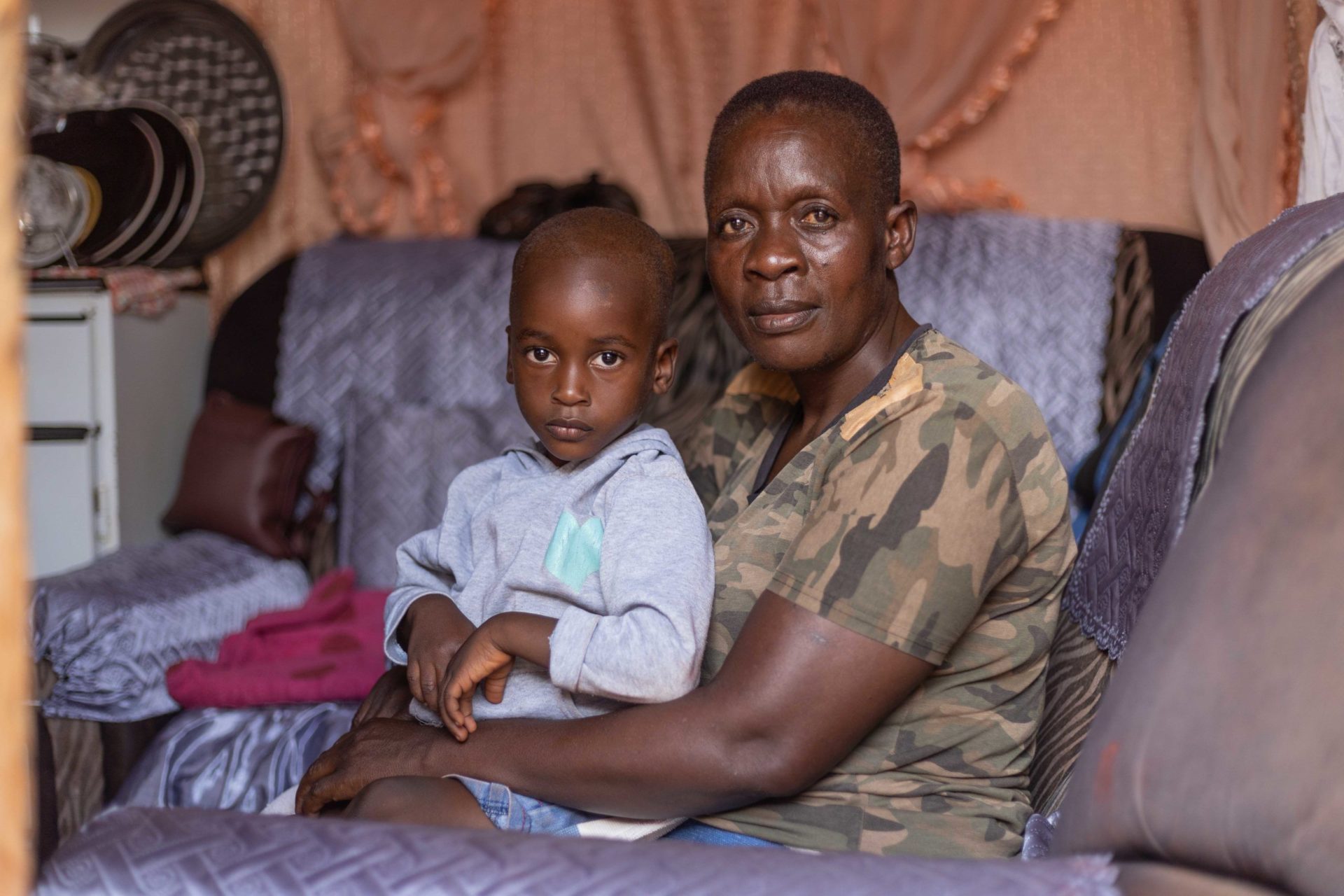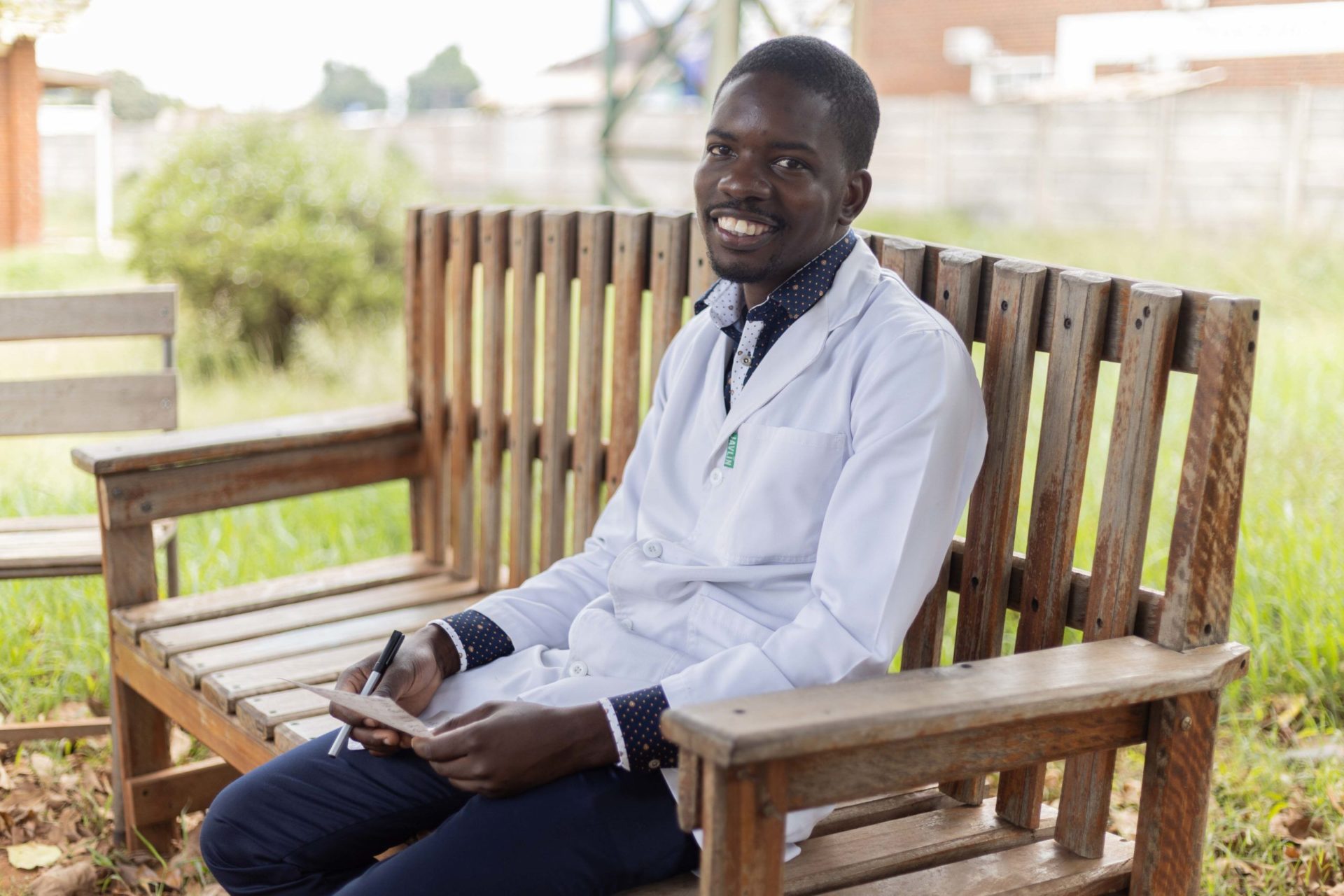 Stories
Stories
May 25, 2022 • 4 min read
When Catherine took custody of her sister’s son, Nathan, in August last year, he was underweight and had swollen feet - a sign that the now four-year-old was suffering from malnutrition.
Nathan’s mother had left him with a friend at just 19-months old in near Harare, Zimbabwe’s capital, before she relocated to South Africa. When Catherine first took her nephew home with her, malnutrition was not Nathan’s only problem; he also had bruises all over his body.
“My friends who told me that Nathan was being abused. At such a young age, he was forced to do household chores, including laundry and washing dishes,” she says. “Neighbours told me that the woman mistreated him. He was suffering at her house.”
Catherine, a single mother of three, took Nathan and went to the nearby clinic for a check-up. She says Nathan could not even eat, walk or play soccer, his favourite sport, with other children in the neighbourhood. Once identified as malnourished, Nathan was admitted for treatment.
The LINKAGES Programme
GOAL Zimbabwe is supporting the City of Harare Health Department in increasing the nutrition status of children and reducing protection risks of vulnerable households in Harare and Bulawayo. This is done as part of the LINKAGES programme, funded by European Union Humanitarian Aid.

Cathrine and four-year-old Nathan
The LINKAGES programme provides support for training and capacity-building on the identification and treatment of Severe Acute Malnutrition (SAM) and Moderate Acute Malnutrition (MAM) in children under the age of five to nurses at Kuwadzana Polyclinic and local community health nurses.
Upon enrolment into the programme, Nathan was given Plumpy’Nut, a peanut-based paste used to treat severe malnutrition. A cash-based transfer of $48 USD was also provided to Catherine in instalments.
“I used this money to buy food for the child, including potatoes, vegetables and rice,” she says, caressing Nathan’s cheek.
Steady Recovery
Nathan recovered well within the initial three months of follow-up and was given a supply of nutritious porridge for the next three months. This is to ensure that the child’s health does not deteriorate again due to food insecurity after stopping the therapeutic feed.
“The porridge improved his appetite. Nathan has gained weight and his health has improved. Most people thought he was not going to make it,” says Catherine, while Nathan plays by her side.
Catherine earns a small income selling clothes at vending stalls in farming areas just outside Harare. Nathan’s mother last got in touch with Catherine in December. They have been trying to reach her since, with no success. She does not provide her son with any financial support and the whereabouts of Nathan’s father are unknown.

Ladisclous Machona, a nutrition volunteer at Kuwadzana Polyclinic in the country’s capital, Harare.
Encouraging Mothers to Return
Ladisclous Machona, a nutrition volunteer at Kuwadzana Polyclinic, says that cash-based transfers from GOAL can be a crucial, timely intervention in supporting families to meet basic needs.
“We used to have cases of relapse, but that is decreasing. I believe it is because of the cash-based transfer which is supporting mothers like Catherine with basic needs and encourages them to return to the clinic for check-ups,” Ladisclous says.
At Kuwadzana Polyclinic, the rate of mothers returning with children with repeated malnutrition was 50% from the period September 2020 to March 2021. It has decreased to just 12% the following year, according to Machona.
Nathan’s guardian, Catherine, is overwhelmed with a sense of joy as his condition improves. He is now mingling with others, and reaching his developmental milestones.
“It makes every parent happy to see a child running around and playing games with others,” Catherine says.
Africa Day 2022
This Africa Day 2022, as the African Union marks it’s Year of Nutrition, GOAL continues to ensure that we not only respond to crises such as food shortages where they occur, but also works towards ensuring that when it comes to food security, vulnerable communities remain resilient to the impacts of future shocks such as conflict, Covid-19 and climate change.
GOAL also focuses work with vulnerable communities to address the root causes of malnutrition by increasing access to nutritional food sources and building household capacity to sustainably support themselves. GOAL works to localise agricultural solutions by training farmers in the best local agricultural practices and using climate smart agricultural techniques to aid sustainable development, working towards better futures for all.
